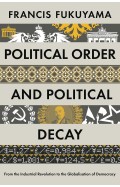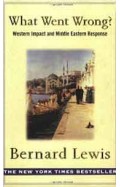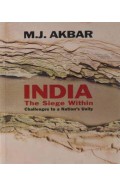Legacy Of Empire: Britain's Support Of Zionism And The Creation Of Israel
By: Gardner Thompson
-
Rs 2,376.50
- Rs 3,395.00
- 30%
You save Rs 1,018.50.
Due to constant currency fluctuation, prices are subject to change with or without notice.
Thompson explores why the British government adopted Zionism in the early twentieth century, issuing the Balfour Declaration in 1917 and then retaining it as the cornerstone of their rule in Palestine after the First World War. Despite evidence and warnings, over the next two decades Britain would facilitate the colonisation of Arab Palestine by Jewish immigrants, ultimately leading to a conflict which it could not contain. Britain’s response was to propose the partition of an ungovernable land: a ‘two-state solution’ which – though endorsed by the United Nations after the Second World War – has so far brought into being neither two states nor a solution.
A highly readable and compelling account of Britain’s rule in Palestine, Legacy of Empire is essential for those wishing to better understand the roots of this enduring conflict.
Thompson explores why the British government adopted Zionism in the early twentieth century, issuing the Balfour Declaration in 1917 and then retaining it as the cornerstone of their rule in Palestine after the First World War. Despite evidence and warnings, over the next two decades Britain would facilitate the colonisation of Arab Palestine by Jewish immigrants, ultimately leading to a conflict which it could not contain. Britain’s response was to propose the partition of an ungovernable land: a ‘two-state solution’ which – though endorsed by the United Nations after the Second World War – has so far brought into being neither two states nor a solution.
A highly readable and compelling account of Britain’s rule in Palestine, Legacy of Empire is essential for those wishing to better understand the roots of this enduring conflict.
Legacy Of Empire: Britain's Support Of Zionism And The Creation Of Israel
By: Gardner Thompson
Rs 2,376.50 Rs 3,395.00 Ex Tax :Rs 2,376.50
Legacy of Empire - Britain, Zionism and the Creation of Israel
By: Gardner Thompson
Rs 3,095.00 Ex Tax :Rs 3,095.00
Zubin Mehta: A Musical Journey (An Authorized Biography)
By: VOID - Bakhtiar K. Dadabhoy
Rs 630.00 Rs 1,050.00 Ex Tax :Rs 630.00
The Origins of Political Order From Prehuman Times to the French RevolutioN
By: Francis Fukuyama
Rs 3,895.00 Ex Tax :Rs 3,895.00
Start-Up Nation: The Story of Israel's Economic Miracle
By: Dan Senor & Saul Singer
Rs 2,396.00 Rs 2,995.00 Ex Tax :Rs 2,396.00
Inside Egypt The Road to Revolution in the Land of the Pharaohs
By: John R. Bradley
Rs 3,496.50 Rs 4,995.00 Ex Tax :Rs 3,496.50
What Went Wrong?: Western Impact and Middle Eastern Response
By: Bernard Lewis
Rs 2,395.00 Ex Tax :Rs 2,395.00
Syria and the USA: Washingtons Relations with Damascus from Wilson to Eisenhower
By: Sami Moubayed
Rs 1,110.00 Rs 1,850.00 Ex Tax :Rs 1,110.00
Under the Black Flag At the Frontier of the New Jihad
By: Sami Moubayed
Rs 957.00 Rs 1,595.00 Ex Tax :Rs 957.00
Jezebel The Untold Story of the Bibles Harlot Queen
By: Lesley Hazleton
Rs 3,195.00 Ex Tax :Rs 3,195.00
Eat Your Heart Out: Who Really Decided What Ends Up On Your Plate
By: Felicity Lawrence
Rs 477.00 Rs 795.00 Ex Tax :Rs 477.00
The Origins of Political Order From Prehuman Times to the French RevolutioN
By: Francis Fukuyama
Rs 3,895.00 Ex Tax :Rs 3,895.00
Start-Up Nation: The Story of Israel's Economic Miracle
By: Dan Senor & Saul Singer
Rs 2,396.00 Rs 2,995.00 Ex Tax :Rs 2,396.00
No recently viewed books available at the moment.
Zubin Mehta: A Musical Journey (An Authorized Biography)
By: VOID - Bakhtiar K. Dadabhoy
Rs 630.00 Rs 1,050.00 Ex Tax :Rs 630.00
Legacy Of Empire: Britain's Support Of Zionism And The Creation Of Israel
By: Gardner Thompson
Rs 2,376.50 Rs 3,395.00 Ex Tax :Rs 2,376.50
Legacy of Empire - Britain, Zionism and the Creation of Israel
By: Gardner Thompson
Rs 3,095.00 Ex Tax :Rs 3,095.00
The Origins of Political Order From Prehuman Times to the French RevolutioN
By: Francis Fukuyama
Rs 3,895.00 Ex Tax :Rs 3,895.00
Start-Up Nation: The Story of Israel's Economic Miracle
By: Dan Senor & Saul Singer
Rs 2,396.00 Rs 2,995.00 Ex Tax :Rs 2,396.00












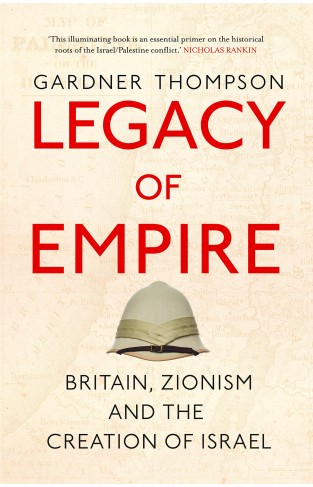
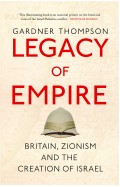
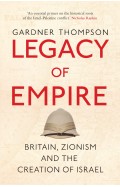
-120x187.jpg?q6)





-120x187.jpg?q6)
